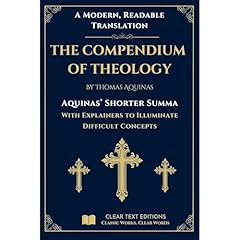
Summa Contra Gentiles
No se pudo agregar al carrito
Add to Cart failed.
Error al Agregar a Lista de Deseos.
Error al eliminar de la lista de deseos.
Error al añadir a tu biblioteca
Error al seguir el podcast
Error al dejar de seguir el podcast
 Exclusivo para miembros Prime: ¿Nuevo en Audible? Obtén 2 audiolibros gratis con tu prueba.
Exclusivo para miembros Prime: ¿Nuevo en Audible? Obtén 2 audiolibros gratis con tu prueba.Compra ahora por $30.76
-
Narrado por:
-
Martin Swain
-
De:
-
Thomas Aquinas
The four books of the Summa contra Gentiles were written by Thomas Aquinas between 1259-1265, before the considerably larger and more influential, Summa Theologica. The purpose of each work was different. Whereas the Summa Theologica addressed the faithful, especially theology students, the intention of the Summa Contra Gentiles (Systematic Exposition Against Non-Christians) was to speak to a non-aligned and even hostile audience. To that purpose, Aquinas presented arguments ‘refuting specific beliefs or heresies.'
There is some evidence that it was suggested that Aquinas write Summa Contra Gentiles to convert particularly the Jews and the Muslims – at least they were underpinned by monotheism. Book I focuses on the one God. There are 102 chapters. Book II concerns the Creation, the physical universe. There are 101 chapters. Book III discusses Providence. There are 163 chapters Book IV looks at ‘Nicean' Christian doctrine in the light of other monotheistic traditions and practices. There are 97 chapters.
The schema Aquinas developed was very straightforward and was continued during the Summa Theologica. Each chapter is given a topic, which is then discussed in detail. Book I Chapter V: ‘That those things which cannot be investigated by reason are fittingly proposed to man as an object of faith.' Book II XV ‘That God is to all things the cause of being.' Book III XXIX ‘That man's happiness consists not in glory.' Book 4 XXIX ‘The error of the Manicheans concerning the Incarnation.'
Aquinas also established his insistence on referencing philosophy from the pre-Christian era, specifically Aristotle whom he calls The Philosopher – acknowledging his importance in Western thought. In fact, in Book I Chapter I he opens with a reference to ‘the Philosopher's opinion'.
This translation, published in 1924, is formally ascribed to ‘The English Dominican Fathers from the latest Leonine Edition'. But is now acknowledged to be, like the translation of the Summa Theologica, the work of one man, Father Laurence Shapcote (1864-1947). Living in South Africa as he did, it was a remarkable achievement.
Los oyentes también disfrutaron:




















Las personas que vieron esto también vieron:


















Short and Sweet
Se ha producido un error. Vuelve a intentarlo dentro de unos minutos.
Brilliant as only St Thomas Aquinas can be.
Se ha producido un error. Vuelve a intentarlo dentro de unos minutos.


